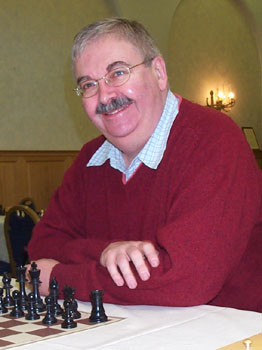

Most chess-players are all too painfully aware of how many half-points and even full points they squander due to poor endgame play. However, they tend to imagine that improving their endgame play involves a massive amount of study of dry technical positions, and prefer to spend their time on other aspects of the game, perhaps in the unrealistic hope of avoiding endgames entirely. In this book, Ian Snape helps them to tackle endgames with more confidence, so that they look forward to playing them, and are more willing to simplify when this is the best course of action. The first half of the book discusses the areas of endgame theory that are most relevant to practical success. The second half features 100 exercises for the reader to solve, together with full solutions. All the exercises are taken from real games.
Ian Snape enjoyed considerable success in junior chess before concentrating on a career in banking, but has returned to the game in the last decade. In correspondence chess he has qualified as an ICCF International Master and registered a grandmaster norm. Over the board, he has played in the British Championship on three occasions and competes regularly in league chess and other events.
Download a pdf file with a sample from the book.
"There is some good, commonsense advice about how to approach various endgame set-ups, both as attacker and defender" - John Saunders, BCM
"Great news - the most useful chess book of the year (at least for most players below 2300) has just arrived" - Chesscountry.com
"What is surprising is the number of times really simple endings occur in practical play. The 100 positions include a great many taken from GM games. I was pleasantly surprised at how often, after only a few seconds thought, I was able to find the winning/drawing line simply by applying my newly acquired knowledge. But even more astounding was the number of times a GM or very strong player had failed to find the right method. Food for thought here! There have been many books on the ending written over the years including a good number in the present millennium, but in terms of value for money I reckon that this one takes some beating." - Alan Sutton, En Passant
"This would be a good book for a teacher to use in a first course on endgames, depending upon whether he or she prefers Snape's style over other books aimed at this level." - John Watson, TWIC
"This is a useful little book." - John Pugh, Chess Post
"On a general note, all of the examples used in the book are taken from contemporary play. Snape included several positions from his own games which I liked as they were on point, well played, and allow the reader to learn more about Snape the chessplayer (besides, it's his book). I believe this book is suitable for players of all standards as it can be used either to learn the basics or to reinforce knowledge a reader already has (or a bit of both). In sum, Chess Endings Made Simple was a pleasure to read and I strongly recommend purchasing it." - Ted McHugh, ChessCafe.com
"Gambit Books must have written the book for readers who don't have too much time to learn how to play chess and just want to learn the most important things. I really recommend this book to readers like that." - Helmut Conrady, Rochade
"The book gives the reader enough basics for the chess endings." - Jerzy Konikowski, Fernschach International
"An interesting book. Chess Endings Made Simple is recommended not only for newcomers to the world of chess endings; average players will also benefit from it." - Schachmarkt
"...an astonishing wealth of useful material of practical importance to amateur players" - Dr. W. Schweizer, Rochade